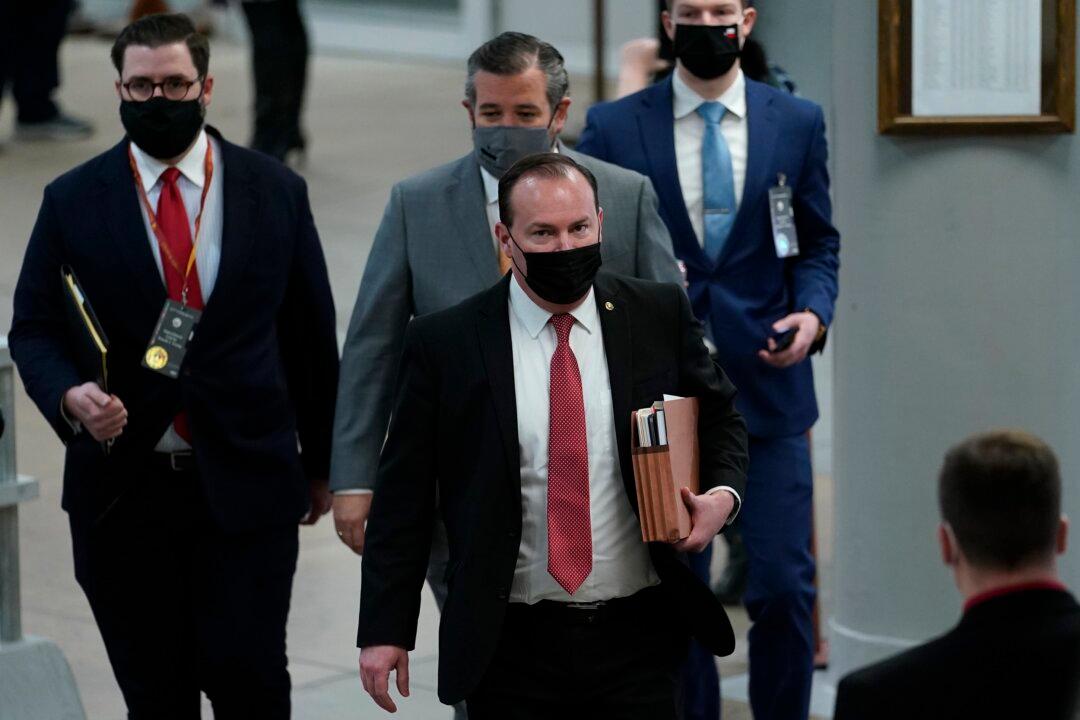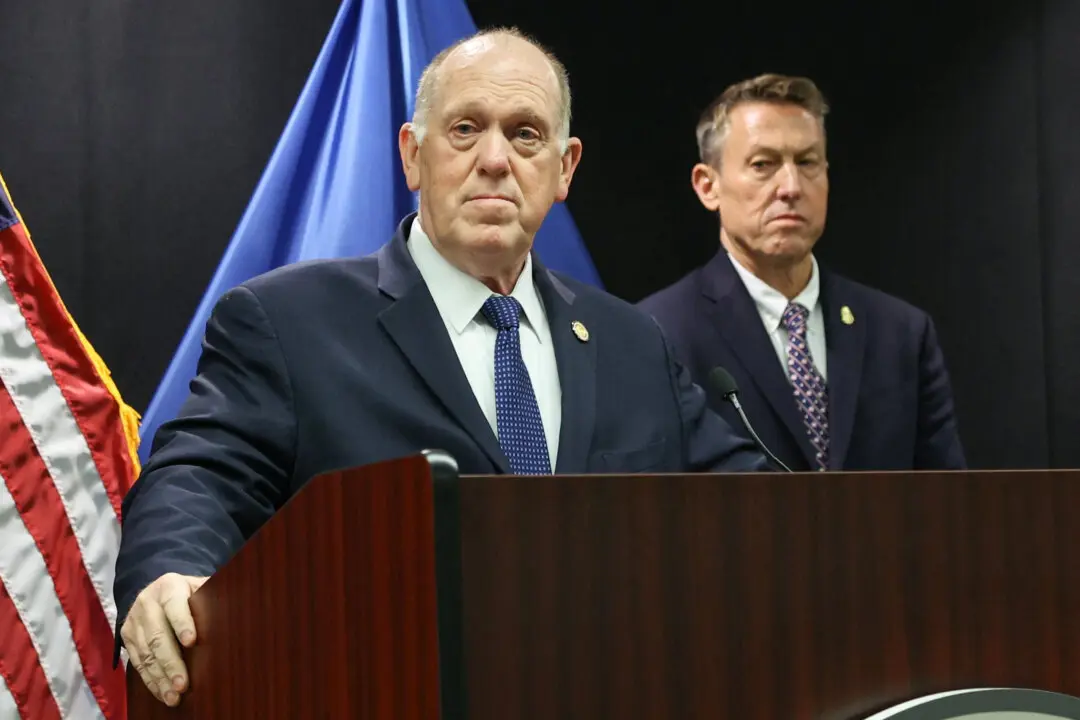A growing number of Republican senators are saying they won’t vote to partially fund the government over the Biden administration’s COVID-19 vaccine mandates.
The federal government faces a partial government shutdown by midnight on Dec. 3, although congressional leaders announced they have a plan that would extend funding into February 2022.





